In the heart of the Texas Hill Country, the sprawling 1,000-acre Spicewood Ranch is serving as a living laboratory for vital ecological research.
Spicewood Ranch, located just outside of Austin, has been owned and operated by Chris Harte since the 1970s with a mission to restore and conserve the natural landscape. Texas Hill Country is a unique and ecologically valuable region, but it has faced significant challenges in recent decades due to habitat fragmentation, invasive species and overgrazing. Harte set out to restore the natural ecosystem of Spicewood and now partners with St. Edward’s University to conduct ecological research on his land.
In collaboration with Amy Concilio, Ph.D., and Kimberly O’Keefe, Ph.D., Spicewood Ranch has become home to valuable climate change research. Concilio and O’Keefe started this project several years ago in 2021, and with the help of students, the research continues to flourish.
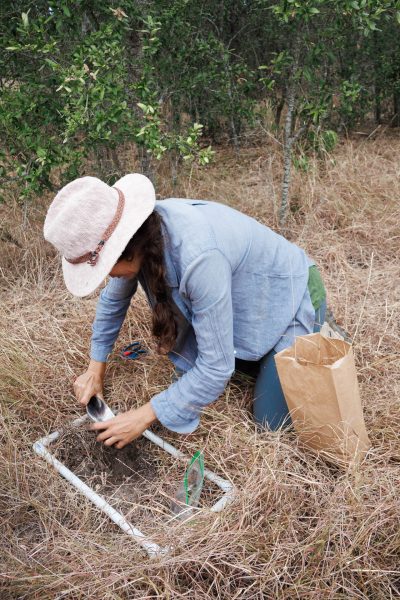
“The overarching theme of my research is looking at how to manage ecosystems in the context of climate change. That’s what I do,” Concilio said. “The idea is that we know climate change is already here. That’s stressing our ecosystems. There’s longer, more frequent droughts. When storms do come, it’s likely to bring flooding. We’re having these weird extreme freeze events. The research that I do is all really focused on that. How do we manage landscapes to maintain the ecosystem and biodiversity in this context?”
Concilio makes strides towards mitigating the impact of climate change, while acknowledging that climate change is real and it is here. Her research, both at Spicewood and on campus, is focused on how both scientists and everyday people can do their part to maintain our environment in the face of a climate crisis.
As extreme droughts become increasingly common due to climate change, scientists are eager to understand how these conditions will impact ecosystems. Concilio has been leading a project at Spicewood Ranch to explore how native and invasive grass species respond differently to drought, aiming to uncover the broader implications for ecosystem health and resilience.
“This experiment is looking at how native versus invasive dominated grasslands respond to the stress of extreme drought,” Concilio says, “There are 10 sites that we’re sampling. The plots are either controlled, in that they have ambient, normal levels of precipitation, or they’re in a simulated extreme drought.”
This past weekend, Concilio brought a group of student volunteers out to Spicewood Ranch to get their hands dirty and collect data for this research project. For many students, the chance to participate in research like this is a very eye-opening experience. It’s one thing to study climate change in the classroom, but it’s something entirely different to stand in the Texas heat, collecting grass and soil samples and observing how droughts are already reshaping the landscape.
For students like Amelia Valencia, an environmental science and policy major and ecology student researcher, this experience builds on her prior academic work and provides additional hands-on experience. Valencia is an advocate for getting involved in research early in your academic career, and is a success story for the positive impacts research offers.
“I think anyone who is a STEM major or is wanting to do something that involves STEM in their career should definitely get involved in fieldwork,” Valencia said. “It can give a different perspective. I think people always have a perception that research is really scary or intimidating, but it can be a lot of fun and could be a great learning opportunity.”
Hands-on and personalized learning experiences like this are what set St. Edward’s apart, giving students the opportunity to apply classroom knowledge in the real world and ask meaningful questions. According to Concilio, research like this wouldn’t be possible without the dedication and enthusiasm of the students involved.
“It wouldn’t be possible without student involvement, because there’s just not enough time in the day to collect and process all the data,” Concilio said. “It also just would be less interesting. All of the research that I do is really student focused, and the questions that I ask are things that are good for training. I don’t know if I would have even done a lot of these projects if I wasn’t at a small liberal arts school where I had students who were enthusiastic to go learn and collect data.”
The partnership between St. Edward’s University and Spicewood Ranch exemplifies the power of collaboration in addressing environmental challenges. By bringing together dedicated researchers, enthusiastic students and a passionate landowner, this project demonstrates how we can work together to make a real difference in the fight against climate change. The collaborative spirit at Spicewood Ranch is an inspiration, proving that collective action can lead to meaningful solutions for a sustainable future.


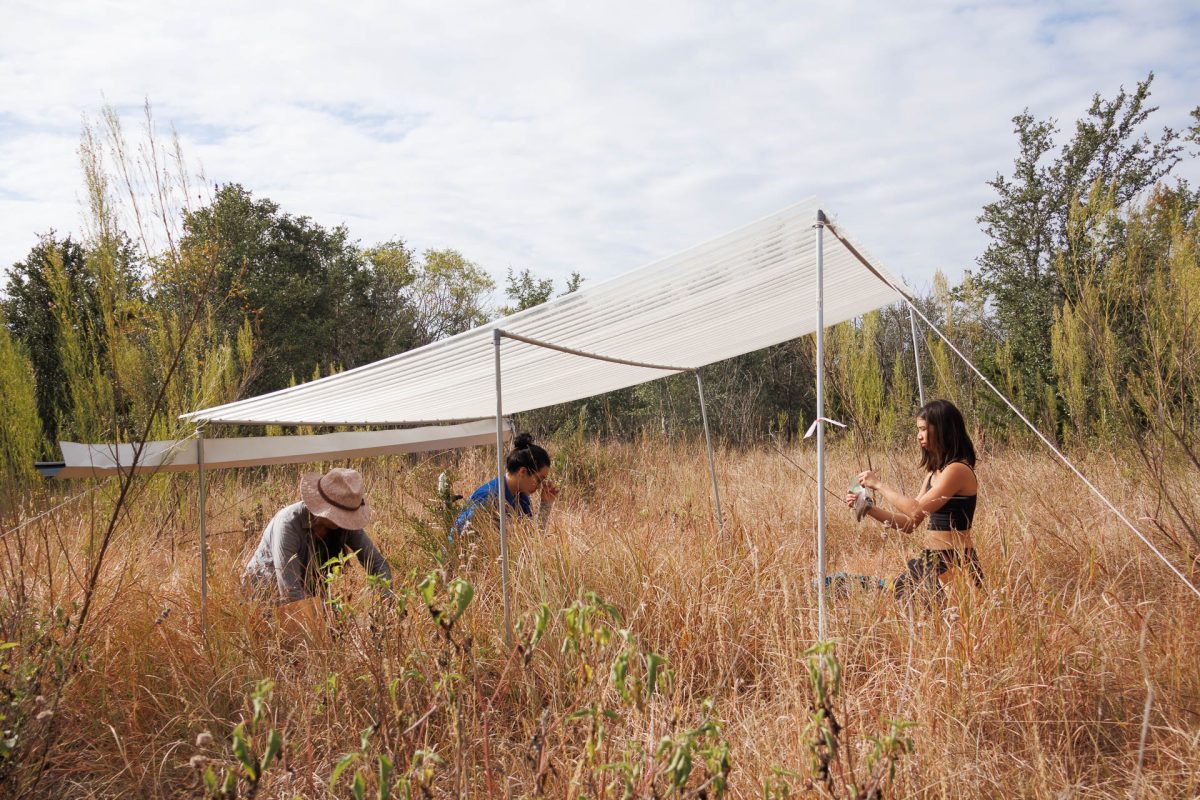
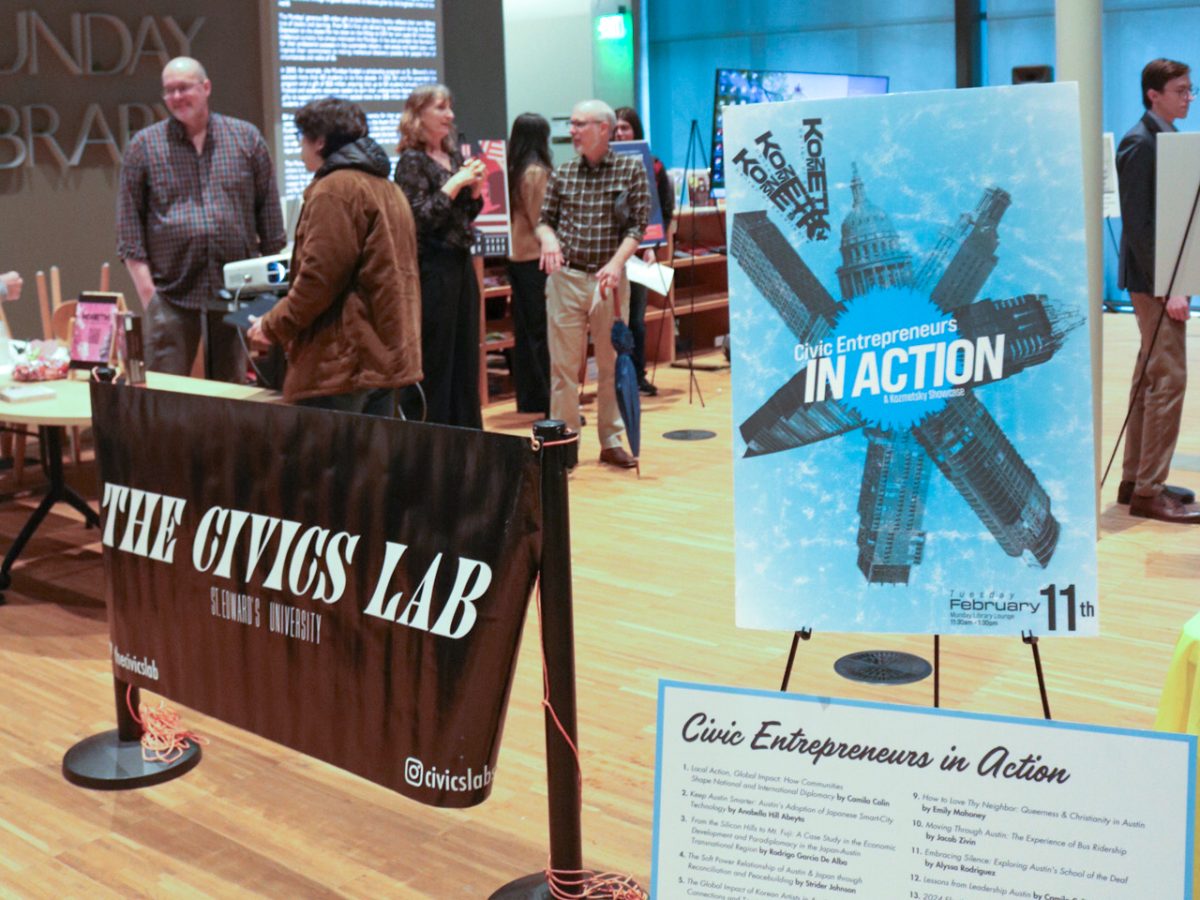
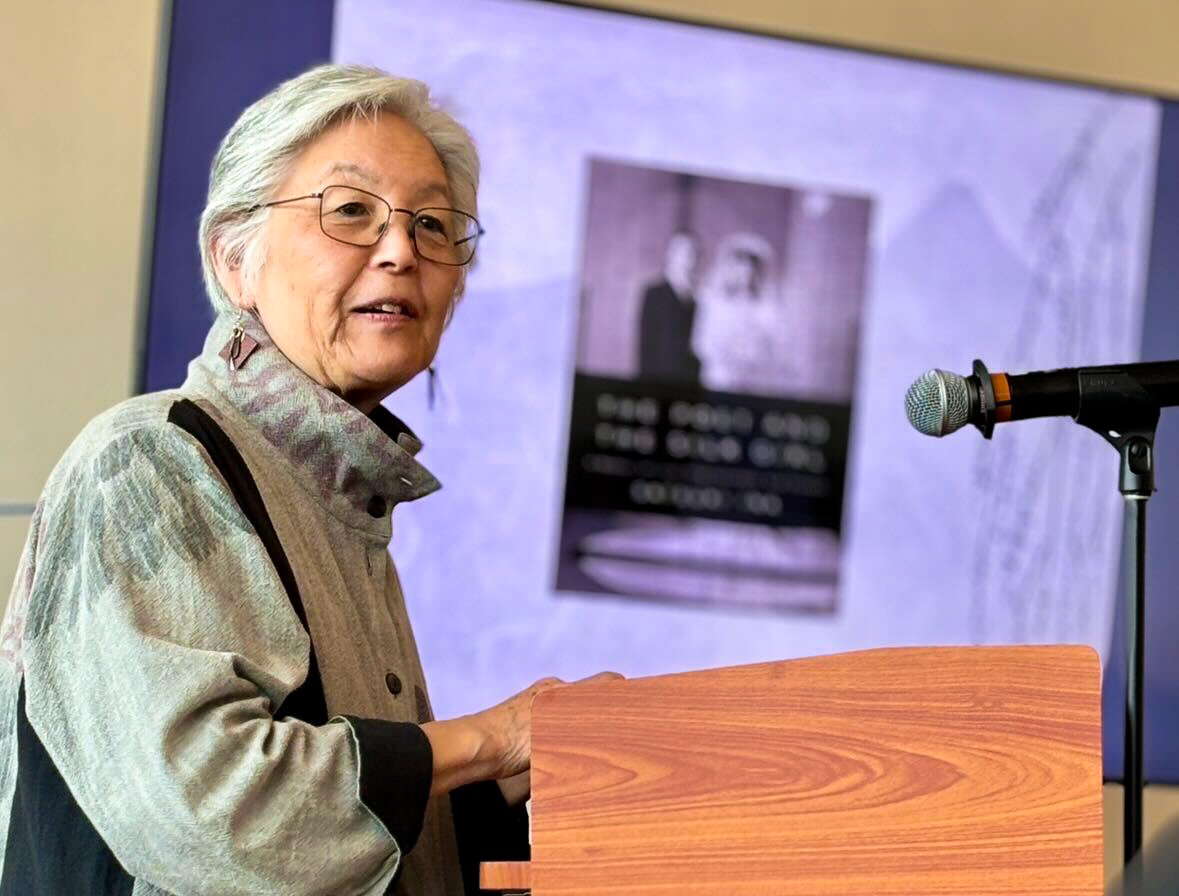
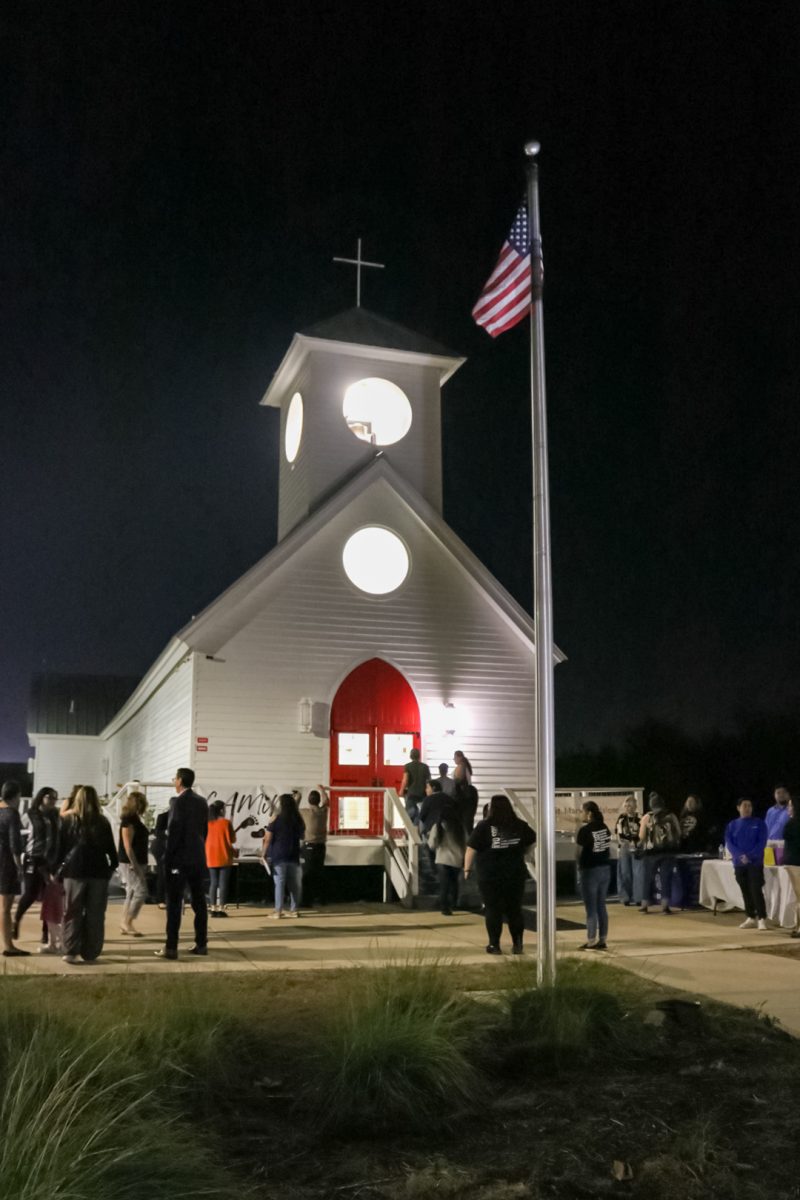
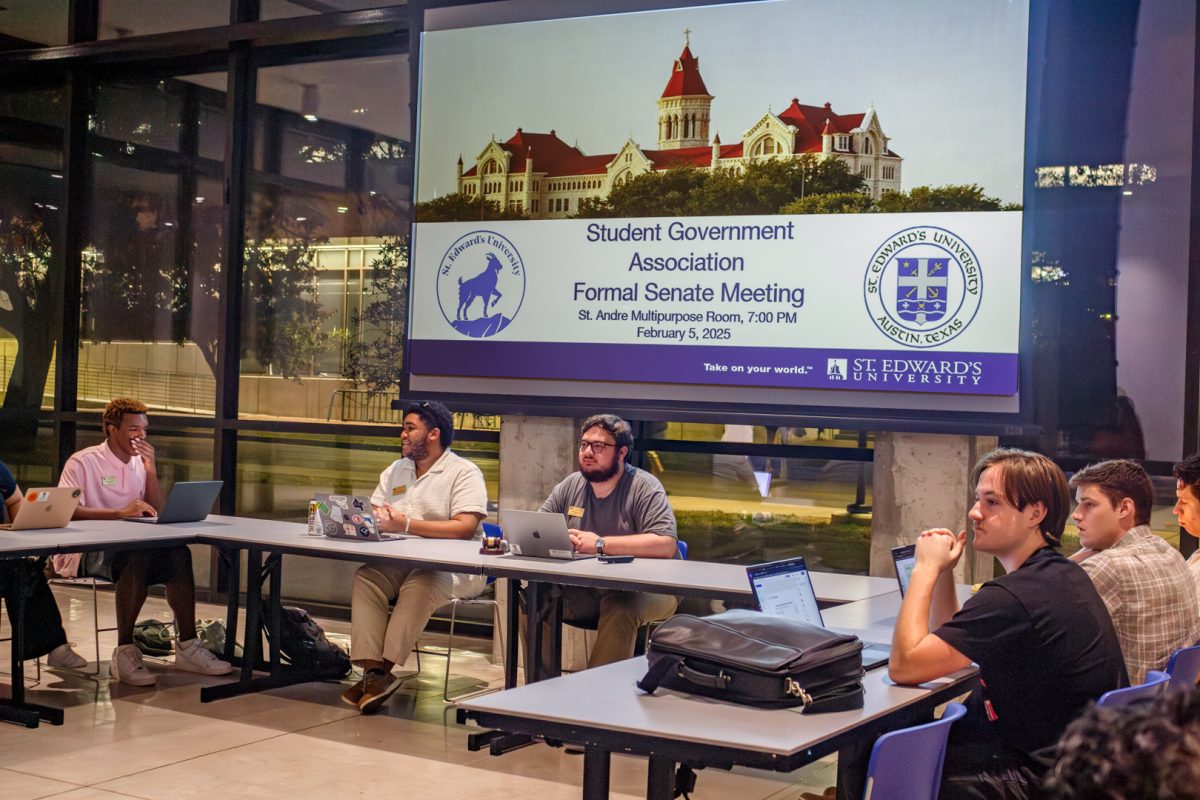






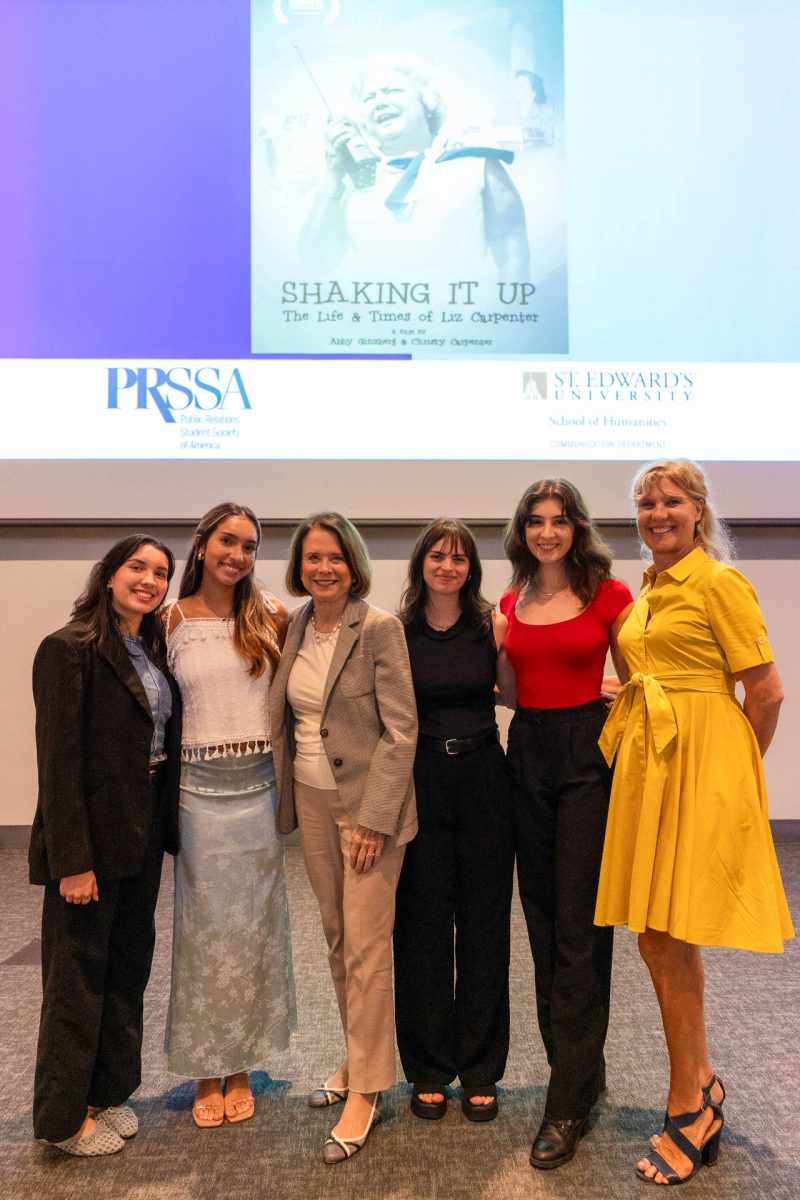
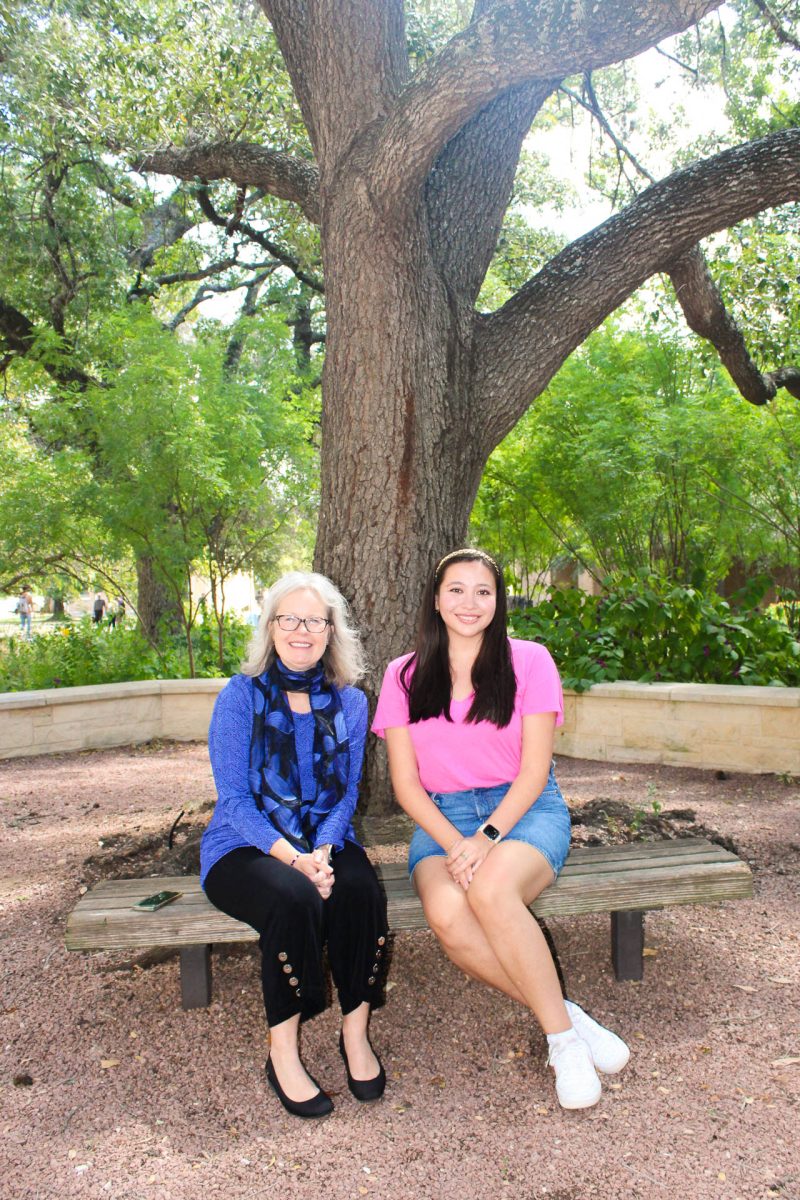
Mike Brent • Oct 21, 2024 at 8:25 pm
I would love to volunteer in this research.
Is it for students only ?